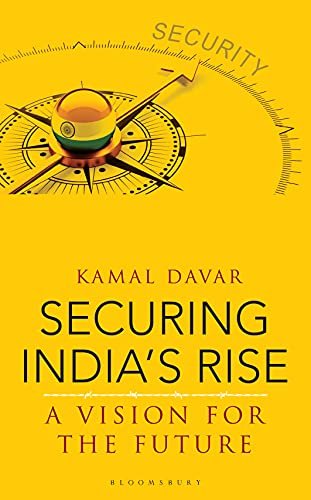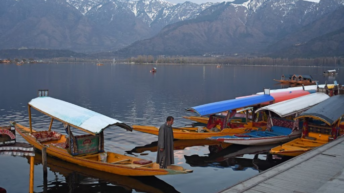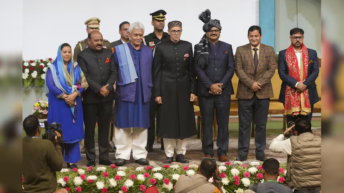|
Listen to article
Getting your Trinity Audio player ready...
|

Since the beginning of 2020, the world is grappling with the Covid-19 pandemic which originated from Wuhan in China sometime in the last quarter of 2019. India too is severely impacted and is currently confronting the third wave of the pandemic, which has hit economic growth across the world. The Indian economy has suffered, the impact being harshest on the poorer segments of society, especially in the unorganised sector. India was aiming to be a USD 5 trillion economy by 2025, but the pandemic has stretched that timeline. India will, however, eventually not just achieve that landmark, but will thereafter aim to be a USD 10 trillion economy—and India will get there too. India’s rise is inevitable and as the 2022 report of the Centre for Economic and Business Research (CEBR) has stated, the Indian economy will overtake Germany’s by 2031, and with an anticipated GDP of USD 6.8 trillion, be the third largest global economy after the US and China. But there are many challenges to India’s rise, some of which are related to geo-political factors and some to the fractious nature of the Indian polity and society.
The book, “Securing India’s Rise: A Vision For the Future,” edited by Lt Gen. Kamal Davar, looks into the challenges that India has to grapple with. The collection of 19 essays by well-known personalities in their respective domains highlight some of these challenges and is a welcome addition to the available literature on the subject. The 19 essays cover a reasonably wide gamut of ideas ranging from the idea of India, to geopolitical considerations, internal and external threats, decision making at the apex level, economic concerns, the digital divide and the fourth estate.
The opening chapter by Shashi Tharoor on ‘Law and the Idea of India’ delves into some aspects that went into the making of the Constitution and his views on what he believes to be the ‘idea of India’. But many of his assertions are debatable. For instance, he states that the 42nd Amendment brought two key principles of India formally into the Constitution—Socialist and Secular. The implication here is that Socialism and Secularism are key principles of the idea of India. But Socialism, as an economic philosophy, has few takers anywhere in the world. As to the insertion of the word Secular into the Constitution of India, it would be naive to think that India is secular because of such a clause. India’s secularism derives from its Hindu majority which is accepting of all faiths. The 42nd Amendment was pushed through by Indira Gandhi during the emergency when the entire opposition was in jail. To hold this up as a model to be emulated strikes at the very idea of what India should be and is a contradiction in terms. Tharoor also speaks disparagingly of ‘Hindutva’, calling it a mirror image of Pakistan. That indicates either a poor understanding of India’s civilisational ethos or a deliberate attempt to distort the truth. An essay on Hindutva as a counter to Tharoor would perhaps have set the tone for a more balanced view. The book, The Hindutva Paradigm, by Shri Ram Madhav makes the point most eloquently.
The geo-political terrain has been neatly mapped by Mr Shyam Saran, who has served as India’s foreign secretary as also by other authors. The regional and global environment impacting India brings out the challenges that India would continue to face in the foreseeable future. India’s security challenges emanating from China and Pakistan have been covered in depth by Prof Kondapalli, a well-known authority on China and by Sharat Sabharwal, who has served as India’s High Commissioner to Pakistan. With respect to West Asia, the region is important for India to meet its energy requirements as also for the fact that close to eight million Indians live and work there. The subject could have been dealt with in greater depth by KC Singh, especially as the region remains mired in conflict, the more serious one being the split on sectarian fault lines. India’s foreign policy has been remarkably successful as seen in the growing friendship with Saudi Arabia and the UAE and the nuanced relationship with Iran, which bodes well for the future.
Two former Service Chiefs, General VP Malik and Admiral Arun Prakash have written very succinctly on India’s security concerns, both on land and in the maritime domain. Internal security challenges have also been covered in depth by domain experts. Together, they chart out a course for managing internal fault lines as well as addressing external security challenges.
Mohan Guruswamy has painted a rather bleak picture of India’s economy and the trajectory of its future growth. Seema Mustafa, in her article on Indian journalism, laments the fall in journalistic ethics. Samir Saran, along with Akhil Deo, writes about the emergence of unevenly governed spaces in the technology and digital domains, which have become new theatres of military and economic confrontation. Manish Tewari in his essay on the Covid 19 challenge, posits the need for regulatory frameworks. This is a lacuna in our system, not just for tackling health emergencies but also in dealing with technological advances which have transformed the way we communicate with each other, how we conduct business and even impact on how future wars will be fought. The wide range of articles on multiple subjects which impact our lives are thought-provoking, but finding solutions to many of the challenges is still a work in progress.
The Editor of the book, Lt Gen Kamal Davar has juxtaposed a variety of ideas into this very comprehensive book. It is indeed a labour of love. It should be of interest to all those who deal with international relations and security issues and is a welcome addition to the available literature on the subject.






Add comment